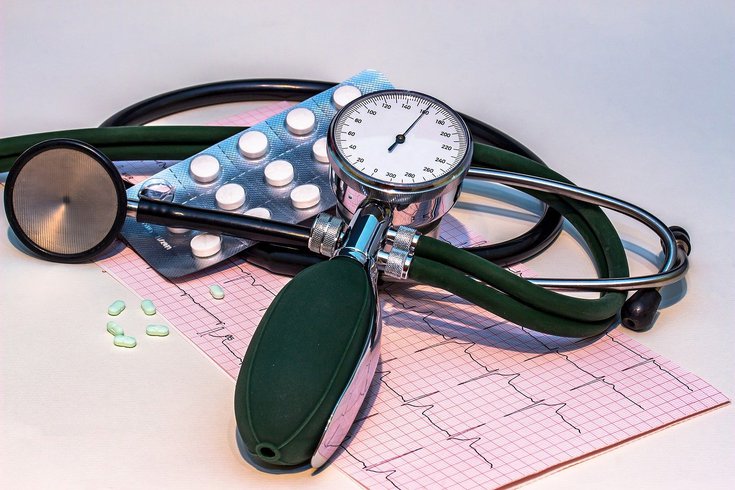
November 08, 2022
 Myriams-Foto/Pixabay
Myriams-Foto/Pixabay
In trials, a new drug lowered blood pressure by targeting the enzyme that produces the hormone aldosterone, which controls salt content in the body. About 92.1 million Americans don't have their hypertension under control, according to the National Center for Health Statistics.
Uncontrolled high blood pressure increases a person's risk for heart disease and stroke, leading causes of death in the United States. A new investigative drug, however, may offer hope to those for whom traditional medications are not working.
In a new study published in the New England Journal of Medicine and presented at the American Heart Association annual meeting, patients who took a daily dose of the drug baxdrostat were able to significantly reduce their blood pressure compared to the patients who were given a placebo. This could be good news for the roughly 92.1 million Americans who don't have their hypertension under control, according to the National Center for Health Statistics.
Baxdrostat works by targeting a hormone responsible for regulating the amount of salt in the body. Study co-author Dr. Morris Brown, a professor of endocrine hypertension at the Queen Mary University of London, told NBC News that traditional blood pressure medications don't work for about 10 million people in the U.S. This is often because their hypertension is mostly caused by the hormone aldosterone, which control's the body's salt content.
Scientists have had difficulty finding a way to regulate this hormone because it is very similar to the stress hormone cortisol, which is an essential hormone. Other drugs that have tried to target the enzyme that produces aldosterone also caused a decline in cortisol. Baxdrostat has a higher selectivity for the aldosterone enzyme, though, Brown explained in an interview with TCTMD.
The 274 patients with hypertension enrolled in the phase 2 trial were given one of three doses of the new drug or a placebo, along with the medications they were already taking. All of them had a blood pressure of at least 130/80 mm Hg, even though they were already on at least three hypertension medications.
Those who received the highest dose of the new drug saw their systolic blood pressure drop 20 points during the study. One surprise was that even the patients in the placebo group saw a reduction of 11 points. The researchers say that this may be because they were being extra diligent about taking their other medication.
Data from the trial also suggested that baxdrostat is safe as well as effective. There were no significant adverse events, the researchers said. Two patients experienced higher potassium levels and a few reported feeling dizzy as their blood pressure came down, but all patients were able to finish the trial.
Hypertension can be hereditary, and people who smoke, who are overweight or who don’t exercise regularly are also at greater risk. Hypertension is known as a “silent killer" because not everyone will experience symptoms with high blood pressure. However, frequent headaches, nosebleeds and trouble breathing may occur when your blood pressure is elevated.
Traditional medications to treat hypertension include Angiotensin-converting enzyme (ACE) inhibitors and Angiotensin II receptor blockers (ARBs), both of which relax your blood vessels, or beta blockers, which slow down your heartbeat.
Phase 3 trials will be needed before the company who developed baxdrostat, CinCor Pharma, can submit data for approval by the U.S. Food and Drug Administration. Currently, patients with resistant hypertension are advised to also take a mineralocortoid receptor antagonist, such as spironolactone, along with three antihypertensive medications. Lifestyle intervention is also recommended, according to the American Heart Association.